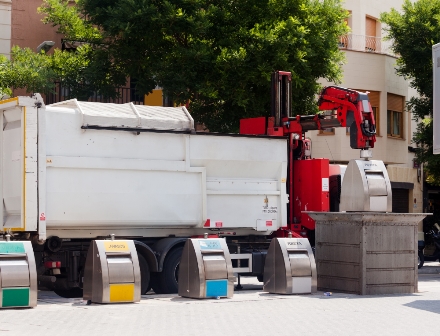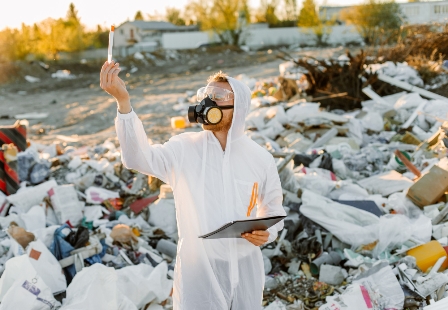Dumpster diving, the practice of searching through dumpsters for discarded items that might still be useful, has become a topic of intrigue for many. It’s often seen as a way to reduce waste and find hidden treasures. However, the legality of dumpster diving varies from one place to another, and it’s essential to understand the rules and regulations specific to your location. In this article, we’ll explore the legality of dumpster diving in Florida, its benefits, risks, and the broader implications of this activity.
Understanding Dumpster Diving
Dumpster diving, also known as trash picking or scavenging, involves searching through dumpsters or waste containers for items such as discarded food, clothing, electronics, or furniture. People engage in this activity for various reasons, including environmental concerns, frugality, and the thrill of finding something valuable amidst discarded items.
The Legal Status of Dumpster Diving in Florida

Trespassing Laws
In Florida, as in most states, the legality of dumpster diving is somewhat murky. Dumpster divers often fall into a gray area of the law. Trespassing laws can come into play, as diving into private dumpsters without permission might be seen as trespassing. However, some individuals argue that once something is placed in a public dumpster, it becomes public property. Nevertheless, it’s essential to be cautious and avoid any confrontations with property owners or law enforcement.
Local Ordinances
Local ordinances in different Florida cities and counties can vary. Some municipalities may have specific regulations regarding scavenging, while others may not address it at all. Therefore, it’s advisable to check local ordinances to ensure compliance.
Private Property Rights
Private property owners, such as businesses or apartment complexes, may restrict or prohibit dumpster diving on their premises. To avoid potential legal issues, it’s crucial to respect the rights and rules set by property owners.
What Can You Find While Dumpster Diving?
Dumpster divers often discover a wide range of items that have been discarded but are still in good condition. This can include clothing, furniture, electronics, and even unopened food items. Many people find these items valuable and put them to good use.
Benefits of Dumpster Diving

Environmental Impact:
Dumpster diving helps reduce waste and promotes recycling and upcycling. It contributes to a more sustainable way of living by diverting usable items from landfills, thereby reducing the strain on the environment.
Frugality:
Many individuals engage in dumpster diving as a means of saving money. By finding discarded items that are still in good condition, they can acquire things they would otherwise have to purchase, thereby reducing their expenses.
Community Building:
Dumpster diving can foster a sense of community and togetherness. When people engage in this activity, they often share their findings and exchange useful items with one another. This creates a sense of unity and cooperation within communities, as people come together over shared interests and the desire to reduce waste.
Risks and Challenges
Legal Uncertainty:
Dumpster diving often exists in a legal gray area, and the rules surrounding it can be uncertain. This can potentially lead to conflicts with property owners or encounters with law enforcement, making it essential for divers to be aware of local regulations.
Hygiene and Safety:
Digging through trash poses significant hygiene and safety risks. Dumpster divers may come into contact with unsanitary materials, sharp objects, or hazardous substances. It’s crucial to take precautions, such as wearing gloves and using protective gear, to minimize these risks.
Reputation:
Dumpster diving may carry a social stigma, and individuals who engage in this practice may face judgment or criticism from others who don’t understand the motivations behind it. Overcoming this social stigma and educating others about the environmental and economic benefits of dumpster diving can be a challenge for those who choose to participate in this activity.
Tips for Responsible Dumpster Diving
Know the Local Laws:
It’s crucial to familiarize yourself with the local regulations that pertain to dumpster diving in your area. Understanding the legal framework and abiding by these laws is essential to avoid any potential legal issues.
Ask for Permission:
Whenever possible, seek permission from property owners or managers before diving into their dumpsters. Obtaining consent not only shows respect for their property rights but can also prevent conflicts and misunderstandings.
Stay Safe:
Dumpster diving can pose hygiene and safety risks. To ensure your well-being, wear gloves and take precautions to maintain personal hygiene. Be cautious of sharp objects, potential biohazards, or hazardous materials that may be present in the dumpsters.
Leave No Mess:
Responsible dumpster diving means leaving the area cleaner than you found it. Always clean up after yourself, properly disposing of any trash or debris you may have inadvertently scattered during your search. This practice helps maintain a positive image of dumpster divers in the community and avoids any negative impact on the environment.
Environmental Impact
Dumpster diving aligns with environmental goals by reducing waste and encouraging recycling. It helps divert useful items from landfills, which ultimately benefits the environment.
Is Dumpster Diving Ethical?
The ethics of dumpster diving can be a matter of debate. Some argue that it’s a way to combat consumerism and reduce waste, while others see it as a breach of privacy and property rights. Ultimately, the ethics of dumpster diving are subjective and vary from person to person.
Alternatives to Dumpster Diving
If dumpster diving seems legally or ethically challenging, consider alternative ways to reduce waste and find affordable items. Thrift stores, garage sales, and online marketplaces are popular alternatives.
Famous Dumpster Diving Finds
Over the years, some dumpster diving enthusiasts have discovered remarkable items, including valuable antiques, perfectly edible food, and even discarded artworks. These stories highlight the potential treasures hidden in dumpsters.
FAQs
Here are the answers to your FAQs:
The legality of dumpster diving varies from state to state and even within municipalities. Some states may have clear laws and regulations, while others may not specifically address dumpster diving. It’s important to research and understand the rules in your specific area.
It’s advisable to ask for permission when dumpster diving, especially if you plan to dive on private property. Getting consent from property owners or managers can help avoid potential legal issues and conflicts.
While dumpster diving can be a way to find valuable items and reduce waste, there are reasons some people may choose not to engage in this activity. Hygiene and safety concerns, the potential for legal conflicts, and social stigma are some factors to consider.
Dumpster diving itself is not illegal, but the legality depends on various factors, including local regulations, property rights, and the specific circumstances of the dive. It’s important to be aware of the legal implications of dumpster diving in your area.
Some retailers, including Bath and Body Works, may discard unsold or damaged products. However, store policies regarding the disposal of products can vary. It’s essential to respect any property rights and regulations when considering dumpster diving at specific businesses.
The best day for dumpster diving can vary, but many divers find success towards the end of the week when stores often clear out older items or damaged goods to make room for new stock. It’s advisable to check the schedule of local businesses and choose a time when they are likely to dispose of items.
Conclusion
The legality of dumpster diving in Florida is not straightforward. It depends on various factors, including local ordinances and property rights. While dumpster diving can be a way to reduce waste and find valuable items, individuals should be aware of the legal and ethical implications involved.

